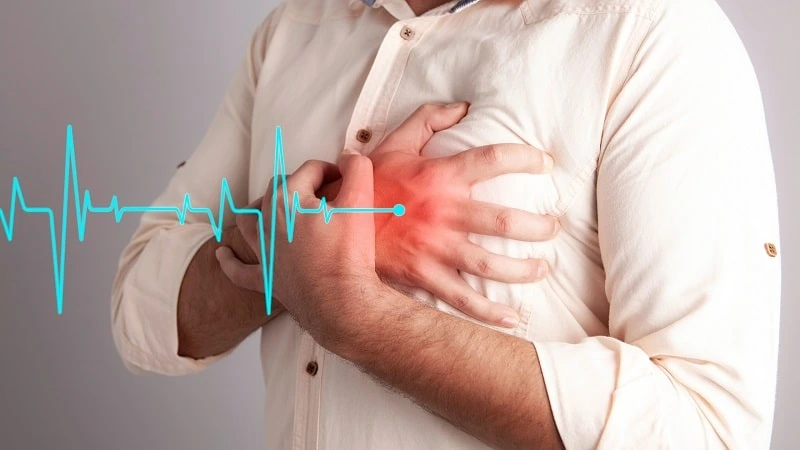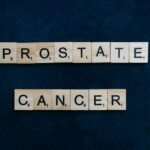Every year, countless families are touched by the reality of ovarian cancer, a condition that predominantly affects post-menopausal women. While the topic may be difficult to broach, awareness and early detection can save lives. This post aims to shed light on the symptoms of ovarian cancer after menopause, with the hope of empowering women with knowledge and the urgency of addressing potential signs without delay.
Understanding Ovarian Cancer
Before we dive into the symptoms, let’s briefly outline what ovarian cancer entails. Ovarian cancer involves malignant cells forming in or on the ovaries.
It often goes undetected until it spreads within the pelvis and abdomen. At this late stage, it is more challenging to treat effectively.
According to the Mayo Clinic, the exact cause of ovarian cancer remains largely unknown, although some risk factors have been identified.
Statistics reveal a sobering trend: post-menopausal women experience a higher prevalence of ovarian cancer. As reported by the American Cancer Society, age is a significant risk factor, with most ovarian cancers developing after menopause.

Common Symptoms of Ovarian Cancer After Menopause
Ovarian cancer can often show subtle, easily disregarded symptoms. Here are some common signs that post-menopausal women should be cognizant of:
- Persistent abdominal or pelvic pain that doesn’t relent and can’t be explained by common digestive or menstrual issues
- Bloating or a constant feeling of fullness, potentially leading to a reduced desire to eat
- Changes in bowel habits such as constipation could signal internal changes needing medical attention
- Urinary symptoms like urgency or frequency that deviate from the norm for you
- Experiencing fatigue or unexplained weight loss that doesn’t have a clear reason and persists over time
Read Also: Can Ovarian Cyst Cause Hormonal Imbalance?
Less Common Symptoms of Ovarian Cancer After Menopause
There are additional symptoms that might be less frequent but are equally important:
- Back pain that is new, persistent, and not related to physical exertion
- Indigestion or heartburn that doesn’t respond to usual dietary changes or medications
- For those who still experience a menstrual cycle, any changes in the pattern, especially if they suddenly become irregular
- Pain during intercourse, which could suggest changes in the pelvic area
- Noticing changes in appetite, especially a decrease, that doesn’t go away

When to Seek Medical Attention
The National Ovarian Cancer Coalition stresses the importance of consulting a healthcare professional when experiencing any combination of these symptoms frequently and persistently over time.
Early diagnosis and treatment significantly influence survival rates; according to the World Health Organization, timely diagnosis can lead to more successful treatment outcomes.
Additionally, a clinical study published in the Journal of Women’s Health observed that post-menopausal women with early diagnosis of ovarian cancer have improved prognosis, highlighting the critical role of recognizing symptoms early.
Conclusion
Understanding and monitoring the health changes that occur after menopause are vital. Recapping the symptoms mentioned, ranging from persistent abdominal pain to changes in appetite, staying vigilant is key.
We must punctuate the significance of regular check-ups and screenings for women in the post-menopausal phase.
Embrace the essence of this message: knowing the symptoms of ovarian cancer equips you with the power to advocate for your health.
Regular communication with your health provider and not hesitating to address any concerns can make a monumental difference. Let this post be a stepping stone in nurturing a proactive approach to your well-being.
Remember, you’re not just looking out for yourself but also setting an example for daughters, sisters, and friends. Your actions and diligence can chart the course of health for generations to come.
Frequently Asked Questions (FAQs)
What is the survival rate for post-menopausal ovarian cancer?
The survival rate for post-menopausal ovarian cancer depends on several factors, including the stage of cancer at diagnosis and the patient’s overall health. Generally, early-stage diagnosis has a better prognosis. The American Cancer Society provides survival statistics based on the stage of cancer.
Are there preventive measures for ovarian cancer?
While there is no definitive way to prevent ovarian cancer, some measures may reduce risk. These include taking oral contraceptives, having undergone tubal ligation or a hysterectomy, and maintaining a healthy weight. Discussing family history with a healthcare professional can also be crucial since certain genetic factors can increase risk.
Can hormone replacement therapy (HRT) after menopause increase the risk of ovarian cancer?
There is some evidence that Hormone Replacement Therapy (HRT) could be linked to an increased risk of ovarian cancer. Women considering HRT should discuss the potential risks and benefits with their healthcare provider, especially if they have other risk factors for ovarian cancer. More information can be found through the National Institutes of Health research articles.
How often should I get screened for ovarian cancer after menopause?
Currently, there is no standard screening test for ovarian cancer for the general population. Women with an average risk typically are not screened. However, those with a high risk, such as those with a family history of ovarian or breast cancer or known genetic mutations, may undergo more frequent examinations. Always consult with your doctor for personalized advice.
Can lifestyle changes reduce the risk of ovarian cancer?
While no direct link between lifestyle and ovarian cancer risk has been proven, general healthy living can help lower the risk of many types of cancer. This includes maintaining a healthy diet, engaging in regular physical activity, avoiding smoking, and limiting alcohol consumption.







